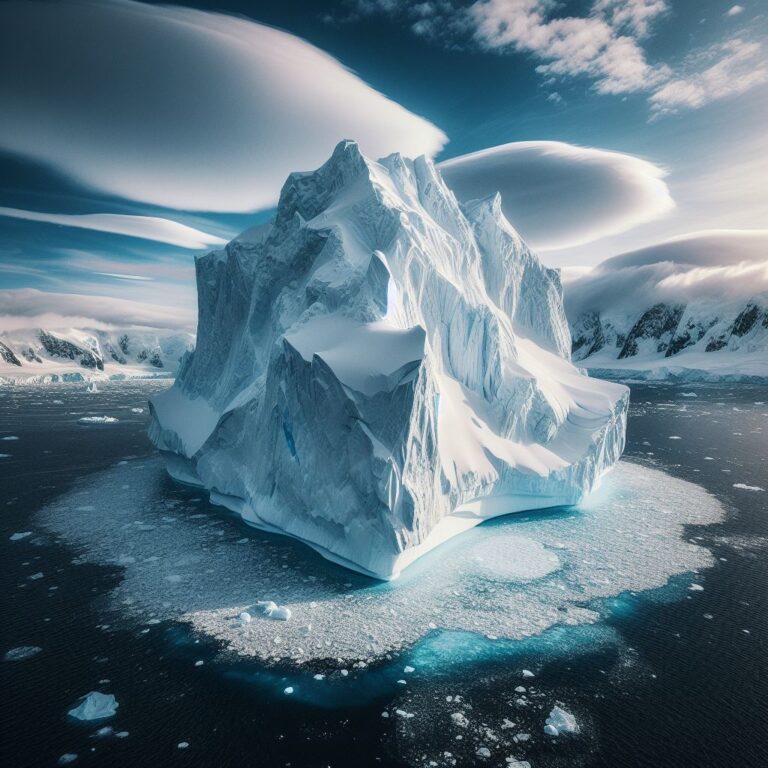Decline in Sea Ice Extent Raises Concerns
In a concerning trend, Antarctica sea ice extent has plummeted below 2 million square kilometers for the third consecutive year. This decline, which has caught the attention of scientists and environmentalists alike, signals a potential regime shift driven by ocean warming.
Implications for Ecosystems and Climate
The reduction in sea ice has far-reaching implications. Here’s what we know:
- Ecosystem Disruption: Sea ice plays a crucial role in supporting Antarctic ecosystems. It provides a habitat for various marine organisms, including krill, which serves as a primary food source for whales, seals, and seabirds. With shrinking ice cover, these delicate ecosystems face disruption.
- Climate Feedback Loop: Sea ice reflects sunlight back into space, helping regulate Earth’s temperature. As it diminishes, more dark ocean water is exposed, absorbing heat and contributing to global warming. This feedback loop exacerbates climate change.
- Sea Level Rise: While Antarctic sea ice doesn’t directly contribute to sea level rise (since it’s already floating), its loss affects the stability of ice shelves and glaciers on land. As these ice masses melt faster, they release freshwater into the ocean, contributing to rising sea levels.
Challenges and Uncertainties
Scientists studying Antarctica grapple with several challenges:
- Complex Interactions: The interactions between sea ice, ocean currents, and atmospheric conditions are intricate. Predicting future changes requires understanding these complex dynamics.
- Data Collection: Antarctica’s harsh environment makes data collection challenging. Remote sensing tools, satellites, and field expeditions are essential but come with limitations.
- Feedback Mechanisms: Researchers are still unraveling feedback mechanisms. How will declining sea ice impact ocean circulation patterns, weather systems, and ice sheet stability?
Other Antarctic Changes
Beyond sea ice, Antarctica faces other significant shifts:
- Land Ice Loss: The continent’s ice sheets are losing mass, contributing to rising sea levels. Melting glaciers and ice shelves threaten coastal communities worldwide.
- Economic Impact: As Antarctica’s ice melts, interest in resource extraction (such as minerals and fisheries) grows. Balancing economic opportunities with environmental conservation is a delicate task.
In summary, Antarctica’s sea ice decline demands urgent attention. It’s not just about ice—it’s about the delicate balance of our planet’s systems.
Check out more articles like this at News Archives – Topic In One Article
